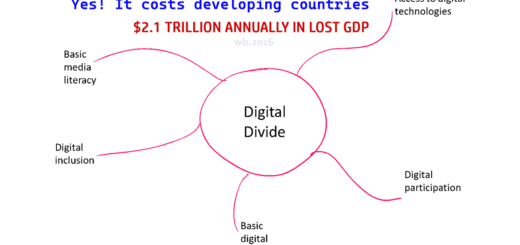Reflection on the Digital Transformation Strategy for Africa (2020-2030)
Abstract
This critical review assesses the Digital Transformation Strategy for Africa (2020-2030), highlighting implementation challenges and proposing actionable recommendations for success.
Introduction
The Digital Transformation Strategy for Africa (2020-2030) represents a significant milestone in the continent’s quest to leverage digital technologies for inclusive growth and development. However, as Africa charts its course towards a digitally empowered future, it is essential to critically assess the strategy, acknowledge its shortcomings, and propose actionable recommendations to address implementation challenges.
Critical Review of the Strategy
While the Digital Transformation Strategy for Africa outlines a comprehensive roadmap for harnessing the potential of digital technologies, several shortcomings deserve attention:
- Lack of Specificity: The strategy often lacks specificity in terms of actionable targets, timelines, and measurable indicators of success. Without clear benchmarks, it becomes challenging to assess progress and hold stakeholders accountable for implementation.
- Limited Focus on Implementation Capacity: While the strategy emphasizes the importance of building digital infrastructure and skills, it often overlooks the critical aspect of implementation capacity. Africa faces significant deficits in execution due to bureaucratic inefficiencies, resource constraints, and skill shortages, which are not adequately addressed in the strategy.
- Fragmentation and Duplication: The proliferation of digital initiatives across different sectors and stakeholders often leads to fragmentation and duplication of efforts. Without a coherent coordination mechanism, resources are dispersed, and synergies are underutilized, hampering the effectiveness of the overall strategy.
- Inadequate Funding: Implementation of the digital transformation agenda requires substantial financial resources, yet funding allocations often fall short of the required amounts. Limited public budgets and a reliance on external financing sources pose challenges to sustained implementation efforts.
Recommendations for Effective Implementation
To overcome the challenges outlined above and ensure the successful realization of the Digital Transformation Strategy for Africa, the following recommendations are proposed:
- Enhance Specificity and Accountability: Revise the strategy to include specific, measurable, achievable, relevant, and time-bound (SMART) targets, accompanied by clear implementation timelines and performance indicators. Establish mechanisms for regular monitoring and evaluation to track progress and hold stakeholders accountable.
- Invest in Implementation Capacity: Prioritize investments in building implementation capacity at both institutional and individual levels. This includes training programs, capacity-building initiatives, and institutional reforms aimed at streamlining processes and improving efficiency.
- Strengthen Coordination and Collaboration: Establish a centralized coordination mechanism to harmonize digital initiatives, avoid duplication of efforts, and maximize synergies across sectors and stakeholders. Foster collaboration between governments, private sector actors, civil society organizations, and international partners to leverage resources and expertise effectively.
- Diversify Funding Sources: Explore innovative financing mechanisms, such as public-private partnerships, venture capital, and impact investment, to supplement traditional sources of funding. Mobilize domestic resources through taxation and revenue generation measures while advocating for increased international support for Africa’s digital transformation agenda.
- Promote Innovation and Adaptation: Foster a culture of innovation and experimentation to identify scalable solutions and adapt strategies to evolving contexts. Encourage grassroots innovation and entrepreneurship, particularly among youth and marginalized communities, to drive inclusive growth and development.
Conclusion
The Digital Transformation Strategy for Africa holds immense promise for unlocking the continent’s digital potential and driving socio-economic progress. However, its effectiveness hinges on addressing implementation challenges and leveraging opportunities for collaboration, innovation, and capacity building. By enhancing specificity, strengthening implementation capacity, fostering coordination, diversifying funding sources, and promoting innovation, Africa can chart a successful path towards digital transformation and realize its vision of a prosperous and inclusive future.
Related post: Leadership for Digital Advancement in Africa; Africa’s Digital Journey Through Time – Video




I can see a certain methodology is used for this critical review, can I get the full review? Let’s talk, we can develop it into a comprehensive review report
Well received, thank you.